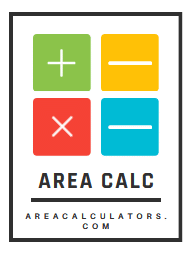Running an air compressor? You’re likely burning energy — but how much exactly?
The Compressor Energy Calculator helps you figure out how much energy your compressor uses based on pressure, flow rate, and time. It’s a practical tool that reveals what’s behind those rising electricity bills — and how to control them.
Whether you’re in a factory, garage, or commercial space, this calculator turns air compression into numbers that make sense.
What Is Compressor Energy and Why It Matters
Compressing air takes power — and lots of it.
Your air compressor consumes energy to deliver pressurized air for tools, machines, and systems. But inefficient compressors drain your power supply, hike up operating costs, and wear out faster.
That’s where this calculator comes in. It tells you:
🔌 How much electrical energy you're using
📉 Where you’re wasting power
💸 How to budget for energy use
📊 How different settings (pressure/flow) impact cost
⚙️ When it’s time for upgrades or repairs
Energy use isn’t just a number — it’s your bottom line. Knowing it helps you save.
Formula and Variables
Energy (kWh) = (Pressure × Flow Rate × Time) ÷ (Compressor Efficiency × 1000)
📝 Note: Pressure in bar, Flow Rate in cubic meters per hour (m³/h), Time in hours.
📊 Variable Table
| Variable | Meaning |
|---|---|
| Pressure (bar) | Output air pressure from compressor |
| Flow Rate (m³/h) | Volume of air delivered per hour |
| Time (h) | Duration the compressor is running |
| Efficiency (%) | Actual efficiency of the compressor (usually 85–95%) |
| Energy (kWh) | Electrical energy consumed over time |
Example: How Compressor Energy Is Calculated
Let’s say you’re using a compressor with:
-
Pressure = 7 bar
-
Flow Rate = 400 m³/h
-
Time = 5 hours
-
Efficiency = 90%
Energy = (7 × 400 × 5) ÷ (90 × 1000)
Energy = 14000 ÷ 90000 = 15.56 kWh
This is the energy required for 5 hours of operation. Multiply that by your local electricity rate to estimate the cost.
How to Use the Compressor Energy Calculator
-
Enter air pressure in bar
-
Input flow rate in cubic meters per hour (m³/h)
-
Add operating time in hours
-
Provide efficiency rating (or use 90% as default)
-
Hit calculate — get your energy use in kilowatt-hours (kWh)
📌 Use it before upgrades, during maintenance, or for energy audits.
Where This Calculator Is Used in Real Life
🏭 Factories – to measure energy use in manufacturing processes
🔧 Workshops – to estimate compressor costs for air tools
🏢 Commercial HVAC systems – to control building pressurization
🚚 Transport & loading docks – for air brake and tool stations
🔍 Energy audits – to spot inefficiencies and leaks
📚 Training – teaching how compressors affect bills and planning
If you're compressing air, this tool helps you track the energy behind it.
Tips for Reducing Compressor Energy Use
✅ Maintain steady pressure — avoid over-pressurizing
✅ Fix leaks in hoses and connections
✅ Clean filters regularly
✅ Run compressors only when needed — use timers or sensors
✅ Upgrade to energy-efficient models with variable speed drives
✅ Insulate air lines to avoid heat losses
The goal? More air, less waste.
Common Mistakes to Avoid
❌ Guessing flow rate or pressure
❌ Ignoring actual run-time (many compressors run longer than logged)
❌ Not considering part-load operation (where efficiency drops)
❌ Overlooking leaks — a small one can cause big losses
❌ Using factory specs without real measurements
Get accurate input to avoid inaccurate results.
FAQs:
1. What is a good efficiency for compressors?
Most modern compressors run between 85–95% efficiency. Older units may drop below 80%.
2. How do I convert cubic feet to cubic meters?
Divide cubic feet by 35.3147 to get cubic meters.
3. Can this be used for all compressor types?
Yes — as long as you know pressure, flow rate, and time, it works for rotary, reciprocating, or screw compressors.
4. Why is energy tracking important for compressors?
Because compressors often account for 30%+ of industrial power use. Tracking helps cut waste and cost.
5. Does altitude affect compressor energy?
Yes — higher altitudes reduce air density, which can change performance.
6. Can I estimate electricity cost from this?
Yes — just multiply the energy result (kWh) by your local electricity rate.
Conclusion:
The Compressor Energy Calculator makes it easy to track and optimize how much power your air compression system uses.
Whether you’re planning a system, managing costs, or just want to reduce your carbon footprint — this tool puts energy savings within reach.
⚡ Save energy. Cut costs. Make your compressor work for you — not against your power bill.
